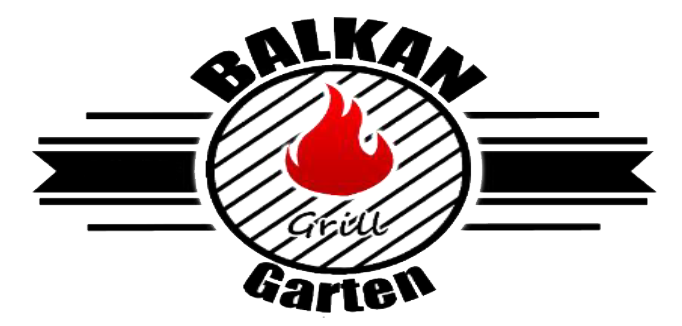Check out the following Q&A to update your knowledge of alcohol and teen drinking. Share this information with a friend, especially if you know someone who is an underage drinker. Alcohol is a depressant that affects the central nervous system, causing mental and physical faculties to slow down and become impaired.
Mixing an antidepressant with alcohol can worsen the side effects of each – a potentially deadly combination. One of the biggest risk factors of consuming alcohol and antidepressants is feeling more depressed or anxious. This can lead to irritability, an inability to sleep and impaired judgment. Because both drugs are depressants, combining marijuana and alcohol increases the likelihood of an overdose.
Teens and Alcohol
Prolonged consumption of drugs and alcohol increases your tolerance, therefore requiring more of the substance to achieve the same desirable effects. At nearly every party is wine addictive I attend I’m offered alcohol, the drug most likely to kill an American. No one would dare offer me meth or cocaine (well, this is Los Angeles, so maybe cocaine).

For many people, it feels good to be doing what everybody else is doing. But drinking just because everybody else is drinking can lead to problems, especially if people are drinking too much and vehicles are involved. After you drink an alcoholic beverage like beer or wine, the alcohol enters your bloodstream from your stomach and small intestine. There, it slows reaction time, makes you less coordinated, impairs your vision, and — even at relatively low doses — leads to unclear thinking and problems making good judgments. Alcohol is a very powerful, addictive drug that is damaging or even lethal in high doses. Yet other people drink too much which results in potentially dangerous consequences.
Substance Use Disorder (Addiction, Drug Dependence, Alcohol Dependence or Alcoholism)
If you partake in heavy drinking or binge drinking, you may develop alcohol use disorder (AUD). Consuming excessive amounts of alcohol and drugs over the course of days, weeks or years can take a toll on your body. Generally, the amount of alcohol consumed and type of drug involved influence health consequences.
- While the effects of alcohol abuse are prominent for most people, some may not realize they have a problem.
- One of the most dangerous risks of depressants is slowed breathing.
- A specialized drug and alcohol treatment center will be able to help you through every step of the recovery process, giving you the greatest chance for lasting recovery.
- The term „alcoholism“ could be applied to someone who drinks yet experiences no negative impact on their life as easily as it could to someone who is addicted.
- If you are ready to discuss treatment, our admissions navigators are available 24/7 to speak with you today.
If you have struggled with an alcohol use disorder, or witnessed someone you love struggle with alcohol dependence, you know how powerful alcohol is as a drug. It may seem like reaching out for help can be challenging; however, there is light at the end of the tunnel. There are many inpatient and outpatient treatment centers available to help you or your loved one overcome their addiction to alcohol and begin the road to recovery. Painkillers like Vicodin, Xanax and OxyContin are heavily prescribed in the United States to treat moderate to severe pain. When used with alcohol, these drugs can produce dangerous health conditions.
What Is Hard Liquor?
When mixed with alcoholic beverages, a sleeping medication can produce dizziness, confusion and faintness. Both heroin and alcohol are depressants which can cause similar side effects. One of the most dangerous risks of depressants is slowed breathing. When you consume heroin with alcohol, these breathing problems can be even more serious and life-threatening. Heroin is a highly addictive drug, so it can prove difficult to quit.
- Beer, wine, and liquor can all have debilitating effects on the user.
- American Addiction Centers (AAC) is committed to delivering original, truthful, accurate, unbiased, and medically current information.
- That makes alcohol the third leading preventable cause of death in the U.S.
- When mixed with alcoholic beverages, a sleeping medication can produce dizziness, confusion and faintness.
- It is always best to enter a medically assisted, inpatient detox facility to detox as there is 24/7 medical support, along with clinical support, followed by inpatient treatment.
- Treatment for alcohol dependence usually involves a wide array of interventions, including stepped therapy, group support, individual counseling, and medications.
Submit your number to receive a call today from a treatment provider. If you answered “yes” to one or several of these questions, you should seek help from a medical professional. These answers should not be considered an official diagnosis; however, they can warn you of potential substance abuse factors and motivate you to get help. In reality, about 50 percent of Americans don’t drink at all (would you have guessed the number was that high?!). Most of the 50 percent of Americans who do drink consume low to moderate, amounts of alcohol (less than 1 per day). At the same time, however, more than half of the respondents reported that spirits boosted their confidence and energy levels, and 42.4 percent said that these strong drinks made them feel sexier.
All alcoholic drinks contain alcohol, and all can be just as dangerous. Beer is between 3% and 5% alcohol; wine is about 12%; and liquor usually is about 40% alcohol. One (12-ounce) beer has about the same amount of alcohol as one (5-ounce) glass of wine or one „shot“ (1.5 ounces) of liquor. Addiction to alcohol, also known as alcoholism or alcohol use disorder (AUD), is one of the most common forms of substance abuse in the Western world. Since alcohol is legal and most of the time can be enjoyed socially with few adverse effects, the signs of addiction can be difficult to identify. At Covenant Hills, the dedicated staff understand the emotional and physical toll alcohol abuse can have on the mind, body, and spirit.
Every drink listed as distilled and undistilled can be referred to as alcohol. However, liquors and hard liquors are made from a process known as distillation. We’re here 24/7 to help guide you or your loved on through rehab and recovery.
Remember, you are not expected to „save“ this person or to become a counselor for this person. However, by educating yourself about alcohol issues and by gathering support for yourself, you can better help the problem drinker. Do you become relaxed, energized, teary-eyed, or angry after having a drink? A new study suggests that what you drink – be that beer, wine, or spirits – may make a difference to how you feel. Accessing help and thinking about recovering from alcohol addiction is a daunting prospect; however, it need not be faced alone.
At some point, many teens are pressured to drink alcohol by friends or peers. Just remember that most teens do not drink regularly, so you are not alone. Research suggests that alcohol-related blackouts occur when blood alcohol concentration (BAC) reaches 0.16%, the same point where impulse control, coordination, judgment, and decision-making are also impaired. These blackouts are more likely to occur when alcohol enters the bloodstream quickly and is more likely in those who take anti-anxiety and sleep medication.
